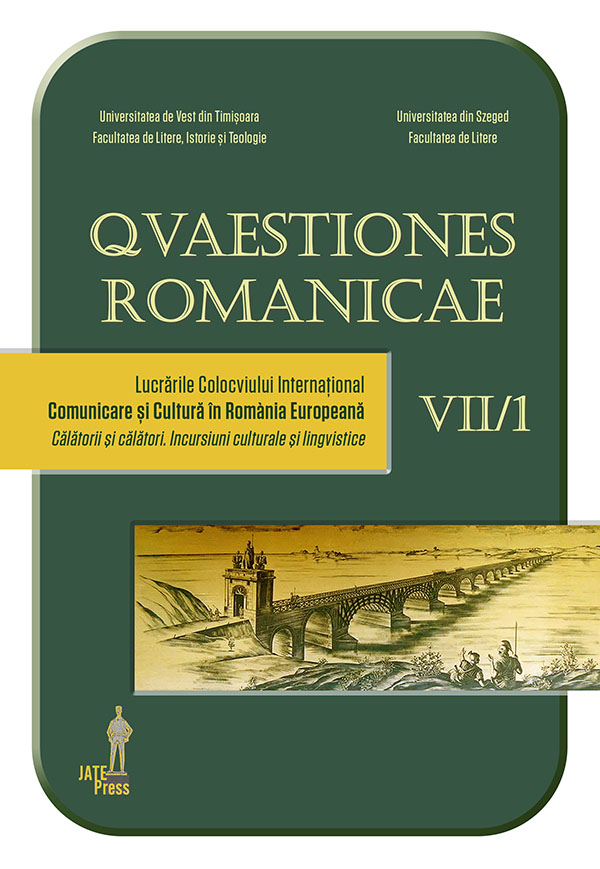Naufragiu către și dinspre „buricul pământului”
Abstract: (Wreck Towards and from the “Navel of the World”) The latest volumes published by Catalin Dorian Florescu – both the novel Der Mann, der das Glück bringt (The Man Who Brings Happiness) and the short stories gathered in Der Nabel der Welt (The Navel of the World) – depict a journey (or migration, under its various aspects) as a catalyst for “lucky” encounters. From the Danube Delta to Manhattan, from 1899 to the 2000s, the novel recounts the journey of the characters in their search for happiness, but also in the struggle for survival. Pictured are several generations and the existence seems like a river that carries the characters on different lands. The picaresque accents are resumed in Der Nabel der Welt, where travel and/ or migration (including all cardinal points) are seen as a periple to the “navel of the world”, to the realm of liberty and promise. But once they get there, the characters learn the “fortune” or the “misfortune” of having left their home – and the 9/11 episode is present in both volumes. The present paper sets out the variables and depictions of the journey, a constant element of C.D. Florescu’s texts.
Keywords: Catalin Dorian Florescu, migration, contemporary literature, travel, picaresque prose.
Rezumat: Ultimele volume publicate de Cătălin Dorian Florescu – atât romanul Der Mann, der das Glück bringt (Bărbatul care aduce fericirea), cât și textele de proză scurtă adunate în Der Nabel der Welt (Buricul pământului) – configurează călătoria (ori migrația, sub diferitele sale ipostaze) drept catalizator al întâlnirilor „norocoase”. Din Delta Dunării până în Manhattan, din 1899 până în anii 2000, romanul narează călătoria personajelor în căutarea fericirii, dar și în lupta pentru supraviețuire. Surprinse sunt mai multe generații, iar existența pare ca un fluviu care poartă personajele pe diferite meleaguri. Accentele de proză picarescă sunt reluate în Der Nabel der Welt, unde, de fiecare dată, călătoria și/ sau migrația (cuprinzând toate punctele cardinale) sunt văzute ca un periplu spre „buricul pământului”, spre tărâmul libertății, al făgăduinței. Însă odată ajunse acolo, personajele constată „norocul” sau „nenorocul” de a-și fi părăsit căminul – iar episodul 11 septembrie 2001 se regăsește în ambele volume. Lucrarea de față expune variabilele și ipostazele călătoriei, element constant al textelor lui C.D. Florescu.
Cuvinte-cheie: Cătălin Dorian Florescu, migrație, literatură contemporană, călătorie, proză picarescă.
